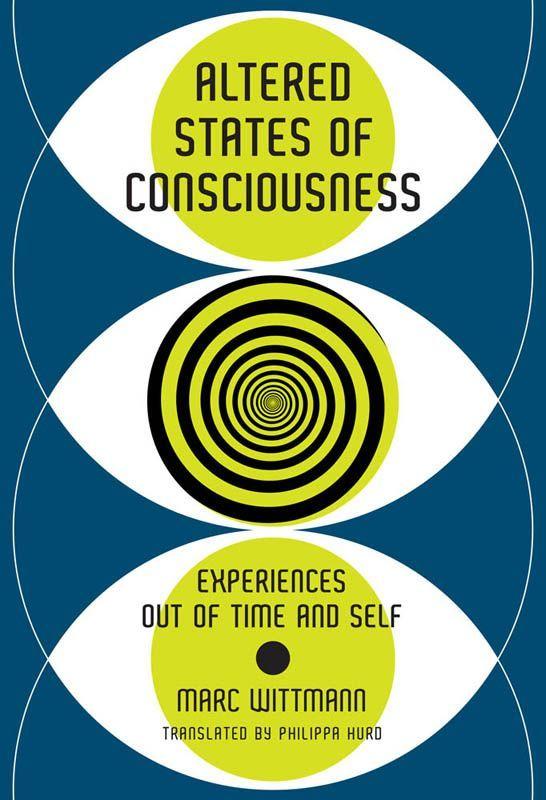Altered States of Consciousness: Experiences Out of Time and Self (The MIT Press) by Marc Wittmann

Author:Marc Wittmann
Language: eng
Format: azw3
Tags: love, mindfulness, epilepsy, selflessness, schizophrenia, meditation, cocaine, present moment, happiness, altered states of consciousness, depression, hashish, self-consciousness, time- consciousness, time perception, psychedelics, drugs, mystic experiences, boredom, opium, near-death experience, hallucinogens, timelessness, addiction
ISBN: 9780262038317
Publisher: The MIT Press
Published: 2018-08-10T06:00:00+00:00
Notes
1. Karl Jaspers, Psychologie der Weltanschauungen, 3rd ed. (Berlin: Julius Springer, 1925), 112.
2. See, for example, the ideas of the sociologist Hartmut Rosa in Social Acceleration: A New Theory of Modernity, trans. Jonathan Trejo-Mathys (New York: Columbia University Press, 2013). For the psychological and neuroscientific view on this, see M. Wittmann, Felt Time, trans. Erik Butler (Cambridge, MA: MIT Press, 2016).
3. Byung-Chul Han, The Scent of Time: A Philosophical Essay on the Art of Lingering, trans. Daniel Steuer (Cambridge: Polity, 2017), 37–38.
4. The French philosopher of Romanian origin E. M. Cioran, who is almost unsurpassed in his pessimism, had his own ecstatic, mystical experiences without descending into transcendental effusiveness as a result. He too describes the two qualities of duration and moment: “The experience of eternity therefore depends on intensity of subjective feeling, and the way to eternity is to transcend the temporal. One must fight hard against time so that—once the mirage of the succession of moments is overcome—one can live fully the instant one is launched into eternity. … those with a keen consciousness of temporality live every moment thinking of the next one. Eternity can be attained only if there are no connections, if one lives the instant totally and absolutely.” E. M. Cioran, On the Heights of Despair, trans. with an introduction by Ilinca Zarifopol-Johnston (Chicago and London: University of Chicago Press, 1992), 64.
5. Ludwig Wittgenstein, Tractatus Logico-Philosophicus (Oxford: Routledge, 2001), 87.
6. Epicurus (341–270 BCE) wrote a letter to Menoeceus in which he wants to convince his correspondent that “death is of no concern to us.” Epicurus, Letters, Principle Doctrines and Vatican Sayings, trans. with an introduction and notes by Russel M. Geer (Indianapolis and New York: Bobbs-Merrill Co., 1964), 54.
7. M. Wittmann and M. Paulus, “How the Experience of Time Shapes Decision-Making,” in M. Reuter and C. Montag (eds.), Neuroeconomics. Studies in Neuroscience, Psychology and Behavioral Economics. (Berlin, Heidelberg: Springer, 2016): 133–144.
8. These ideas can be found in the work of Karl Jaspers, Martin Heidegger, Søren Kierkegaard, Jean-Paul Sartre, and Otto Friedrich Bollnow.
9. Peter Handke, To Duration, trans. Scott Abbott (Amsterdam: The Last Books, 2015), 13.
10. Saint Augustine discussed the question of the possible duration of an instant in such a substantial way that no philosopher has been able to ignore his ideas ever since. For an account of his ideas see K. Flasch, Was ist Zeit? Augustinus von Hippo. Das XI . Buch der Confessiones (Frankfurt and Main: Vittorio Klostermann, 1993). In the nineteenth century, the British empiricists wrestled with and further developed the notion of the moment of time, until in 1890 William James formulated the idea of the “specious present” as an expanded moment. This historical development is described in H. Andersen, “The Development of the ‘Specious Present’ and James’s Views on Temporal Experience,” in V. Arstila and D. Lloyd (eds.), Subjective Time: The Philosophy, Psychology, and Neuroscience of Temporality (Cambridge, MA: MIT Press, 2014), 25–42.
11. Moreover, this shows how the representation of temporal relationships is dependent on the spatial organization of moments in time. Time is conceptualized as a spatial arrow of time.
Download
Altered States of Consciousness: Experiences Out of Time and Self (The MIT Press) by Marc Wittmann.azw3
This site does not store any files on its server. We only index and link to content provided by other sites. Please contact the content providers to delete copyright contents if any and email us, we'll remove relevant links or contents immediately.
Periodization Training for Sports by Tudor Bompa(8254)
Why We Sleep: Unlocking the Power of Sleep and Dreams by Matthew Walker(6706)
Paper Towns by Green John(5179)
The Immortal Life of Henrietta Lacks by Rebecca Skloot(4577)
The Sports Rules Book by Human Kinetics(4379)
Dynamic Alignment Through Imagery by Eric Franklin(4208)
ACSM's Complete Guide to Fitness & Health by ACSM(4057)
Kaplan MCAT Organic Chemistry Review: Created for MCAT 2015 (Kaplan Test Prep) by Kaplan(4008)
Introduction to Kinesiology by Shirl J. Hoffman(3766)
Livewired by David Eagleman(3764)
The Death of the Heart by Elizabeth Bowen(3610)
The River of Consciousness by Oliver Sacks(3599)
Alchemy and Alchemists by C. J. S. Thompson(3516)
Bad Pharma by Ben Goldacre(3422)
Descartes' Error by Antonio Damasio(3270)
The Emperor of All Maladies: A Biography of Cancer by Siddhartha Mukherjee(3148)
The Gene: An Intimate History by Siddhartha Mukherjee(3094)
The Fate of Rome: Climate, Disease, and the End of an Empire (The Princeton History of the Ancient World) by Kyle Harper(3055)
Kaplan MCAT Behavioral Sciences Review: Created for MCAT 2015 (Kaplan Test Prep) by Kaplan(2984)
